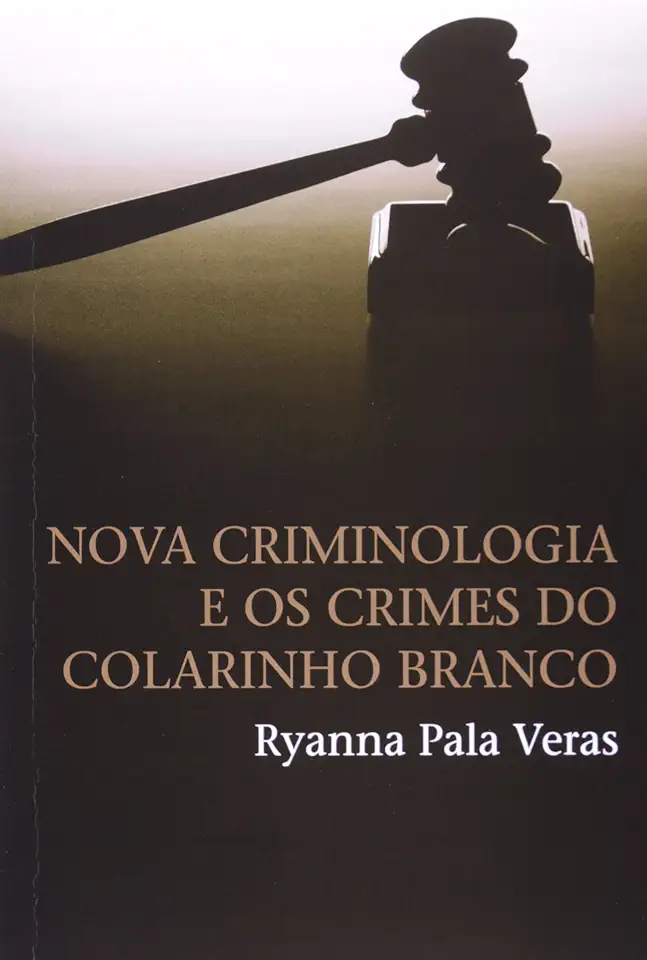
New Criminology and White-Collar Crime - Ryanna Pala Veras
New Criminology and White-Collar Crime: A Comprehensive Analysis
Introduction
In the realm of criminology, the study of white-collar crime has long been overshadowed by its more sensational counterparts, such as violent crimes and property offenses. However, the impact of white-collar crimes on society is undeniable, with their far-reaching consequences often causing significant financial losses, environmental damage, and even loss of life. In her groundbreaking book, "New Criminology and White-Collar Crime," Ryanna Pala Veras offers a fresh perspective on this critical area of criminology, shedding light on the unique characteristics, causes, and consequences of white-collar crimes.
Understanding White-Collar Crime
White-collar crime is a term used to describe a wide range of non-violent crimes committed by individuals or organizations in the course of their professional or business activities. These crimes often involve fraud, embezzlement, insider trading, bribery, and other forms of financial misconduct. Unlike traditional street crimes, white-collar crimes are typically committed by individuals of high social status and economic power, making them particularly insidious and challenging to investigate and prosecute.
The New Criminology Approach
Traditional criminological theories have often fallen short in explaining the causes and patterns of white-collar crime. In contrast, the new criminology approach offers a more comprehensive framework for understanding these crimes by examining the social, political, and economic factors that contribute to their occurrence. Veras argues that white-collar crimes are not simply isolated incidents of individual greed or moral failure, but rather systemic issues rooted in the structures of power and inequality in society.
Key Themes and Findings
Throughout the book, Veras explores several key themes and presents compelling findings that challenge conventional notions of white-collar crime. Some of the central arguments and insights include:
The Social Harm of White-Collar Crime: Veras emphasizes the devastating impact of white-collar crimes on individuals, communities, and the economy as a whole. She argues that these crimes are not victimless, as they often result in job losses, financial ruin, and even physical harm.
The Role of Power and Privilege: Veras highlights the role of power and privilege in facilitating white-collar crimes. She demonstrates how individuals and organizations with access to power and resources are more likely to engage in these crimes and often face less severe consequences compared to offenders from lower socioeconomic backgrounds.
The Failure of Regulation: Veras critiques the inadequacy of existing regulatory frameworks in preventing and punishing white-collar crimes. She argues for stricter regulations, increased enforcement, and improved corporate governance to address the systemic issues that contribute to these crimes.
The Need for Social Change: Veras concludes by emphasizing the need for broader social and economic changes to address the root causes of white-collar crime. She calls for a more just and equitable society that values ethical behavior, transparency, and accountability, ultimately leading to a reduction in these harmful crimes.
Conclusion
"New Criminology and White-Collar Crime" is a must-read for anyone interested in understanding the complex nature of white-collar crimes and their far-reaching consequences. Ryanna Pala Veras' insightful analysis and compelling arguments provide a fresh perspective on this critical area of criminology, challenging conventional theories and offering a roadmap for addressing these crimes effectively. This book is essential reading for criminologists, sociologists, policymakers, and anyone concerned about the impact of white-collar crime on society.